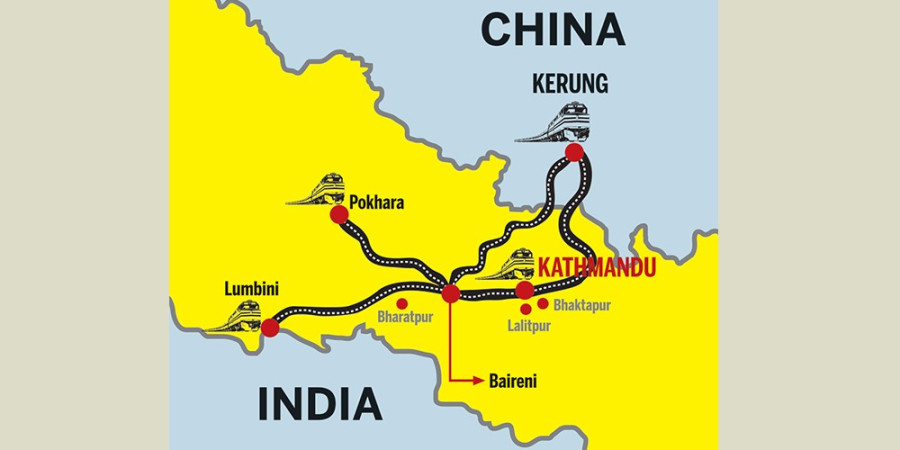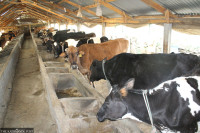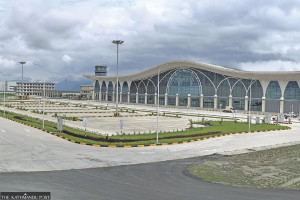Money
Nepal-China railway ‘technologically and economically feasible’
Chinese experts have said the much-touted railway link between Nepal and China through the Himalayan highland “is economically and technologically feasible”.
Sanjeev Giri
Chinese experts have said the much-touted railway link between Nepal and China through the Himalayan highland “is economically and technologically feasible”.
A report carried by China Daily on Friday says the country has accumulated technology and experience to build a rail link between the Tibet autonomous region and the South Asian subcontinent.
According to the newspaper, a Himalayan train ride at more than 100kmph speeds at the foot of the world’s highest snow-capped mountains is no longer just a dream.
“The construction of a railway crossing the Himalayan Mountains is now economically and technologically feasible,” the newspaper quoted Zong Gang, deputy director of the Science and Technology Department at Beijing University of Technology, as saying.
The Gyirong (Kerung) port lying at the Nepal-China border stands at an altitude of 2,800 meters above the sea level. The Gyirong mountain pass to Nepal lies at around 1,800 meters, making the railway geographically feasible.
Lhasha and Xigaze, the two major cities of Tibet lying at an altitude of 3,700 meters and 3,800 meters above the sea level respectively, already have railway connectivity.
According to the news report, while Nepal hopes that China can connect the port with Kathmandu, for China, the railway line will help boost economic, cultural and religious communications with Nepal as part of the Belt and Road initiative proposed by Chinese President Xi Jinping.
Although China has more than 19,000km of high-speed railways with a capacity to travel at speeds up to 350kmph, the railway line starting from Xigaze in Tibet to a land port in Gyirong will not be a high-speed one. The Xigaze-Gyirong railway line, whose construction is supposed to be completed by 2020, will have up to 100kmph speed.
Building rail links is the most powerful way to help Tibet open up to South Asian countries, the same news report quoted Chairman of the Tibet Autonomous Region government Losang Jamcan as saying.
According to the report, Zhou Yuhui, a professor at Beijing Jiaotong University, said: “While bringing tourists and businesses to Gyirong, which will help local people to escape poverty, the China-Nepal railway will also help to make people more willing to integrate into modern life.”
Zhou had recently made a field visit to the Nepal-China border.
Former Prime Minister KP Sharma Oli and Chinese Premier Li Keqiang had agreed to cooperate in several areas, including the transportation sector, during the former’s official visit to Beijing in March this year.




 11.12°C Kathmandu
11.12°C Kathmandu















